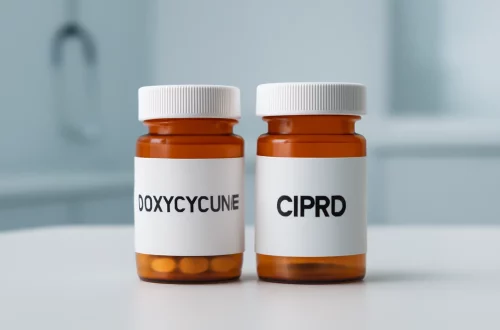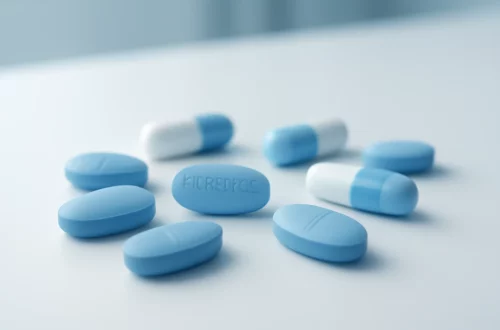
Find Trusted Vets for Guinea Pigs Near You Today
Finding a trusted veterinarian for your guinea pig is an essential part of being a responsible pet owner. Guinea pigs, with their gentle nature and social behavior, require specialized care that differs significantly from that of cats and dogs. Their unique anatomical structures and health needs demand veterinarians who are not only skilled but also have a passion for exotic pets.
As you embark on the journey of pet ownership, it’s crucial to educate yourself about the specific needs of guinea pigs, which include proper diet, social interaction, and regular health check-ups. An experienced vet can help you navigate these needs, ensuring that your furry friend remains healthy and happy. Moreover, establishing a relationship with a veterinarian who understands the nuances of guinea pig care can provide you with peace of mind, knowing that you have a reliable resource for any questions or concerns that may arise.
In your search for a vet, you may encounter several options that vary in expertise and specialization. This can be overwhelming, especially if you are new to guinea pig care. However, with the right information and approach, you can find a vet who will cater to your pet’s specific needs. Let’s explore some key factors to consider when looking for a trusted vet for your guinea pig.
Understanding the Importance of Specialized Care
Guinea pigs, unlike more common pets, have distinct health requirements that necessitate specialized veterinary knowledge. These small animals are prone to specific diseases and health issues, such as dental problems, respiratory infections, and obesity. A veterinarian who specializes in exotic pets is more likely to be familiar with these conditions and the best practices for preventing them.
When searching for a vet, it’s important to look for someone who has experience treating guinea pigs specifically. This expertise allows them to provide tailored advice regarding diet, living conditions, and social needs. For instance, guinea pigs require a diet rich in vitamin C, and a knowledgeable vet can guide you on the best food options and supplementation necessary for optimal health.
Moreover, a specialized veterinarian will be familiar with the signs of common health problems. They can perform routine check-ups and dental examinations, ensuring that your pet remains in good condition. Regular visits to a vet can help in early detection of potential issues, which can be crucial in managing your guinea pig’s health effectively.
In addition, a vet who knows guinea pigs can also provide valuable insight into behavioral issues. Understanding the social dynamics of guinea pigs can help you create a harmonious environment for your pet. A good vet will not only treat illnesses but will also offer advice on how to improve your guinea pig’s overall quality of life.
Finding a Veterinarian Near You
Once you understand the importance of having a vet who specializes in guinea pigs, the next step is locating one nearby. Start by searching online directories and veterinary association websites that list veterinarians by specialty. You can search for terms like “exotic animal vet” or “guinea pig vet” in combination with your location to narrow down your options.
Additionally, consider reaching out to local animal shelters or rescue organizations. These groups often have connections with veterinarians who are experienced in treating small animals, including guinea pigs. They can provide recommendations based on their experiences and may even have partnerships with local vets.
Social media and online community groups can also be excellent resources. Joining guinea pig forums or local pet groups allows you to connect with other guinea pig owners who can share their recommendations and experiences with different veterinarians. Personal testimonials can give you a better sense of which vets are truly committed to the health and well-being of guinea pigs.
Once you have a shortlist, take the time to visit the clinics in person. Check for cleanliness, the friendliness of the staff, and how comfortable you feel within the environment. A good veterinary clinic should make both you and your guinea pig feel at ease.
Don’t hesitate to ask questions during your visit. Inquire about the vet’s experience with guinea pigs, the types of services offered, and their approach to preventive care. This will help you gauge whether the vet aligns with your expectations and your guinea pig’s needs.
Evaluating Veterinary Services for Guinea Pigs
When you have narrowed down your options, it’s time to evaluate the services offered by each veterinary clinic. Not all vets provide the same level of care or range of services, so it’s essential to consider what you need for your guinea pig.
First, ensure that the veterinary services include wellness exams, vaccinations, and dental care. Guinea pigs are susceptible to dental issues, so a vet who understands the importance of dental health will be crucial. Look for a clinic that offers comprehensive dental care, including routine examinations and treatments for dental diseases.
Next, consider the diagnostic capabilities of the clinic. A veterinarian that has the necessary equipment for ultrasound, X-rays, and blood tests can provide a more thorough examination and quicker diagnosis of potential health issues. This is particularly important because guinea pigs can exhibit subtle signs of distress that may not be immediately apparent.
Additionally, inquire about emergency services. Accidents and health crises can occur unexpectedly, and knowing that your vet can handle emergencies will give you peace of mind. Some clinics may have after-hours services or partnerships with emergency veterinary hospitals.
Lastly, don’t forget about the importance of communication. A good veterinarian will take the time to explain diagnoses, treatment options, and preventive care strategies. They should be open to questions and willing to provide educational resources to help you better understand your guinea pig’s needs.
Building a Relationship with Your Veterinarian
Establishing a good relationship with your veterinarian is key to ensuring the well-being of your guinea pig. Once you’ve selected a vet, make it a point to visit regularly for check-ups and consultations. This not only helps maintain your pet’s health but also fosters trust and familiarity between you and your veterinarian.
During your visits, provide your vet with as much information as possible about your guinea pig’s behavior, diet, and any concerns you may have. Keeping a record of your pet’s health history, including any changes in behavior or appetite, can be very helpful for your veterinarian. This information can assist them in making informed decisions regarding your guinea pig’s care.
Additionally, don’t hesitate to take the initiative in your pet’s health. Discuss preventive care options, ask about the latest treatments, and seek advice on environmental enrichment. A proactive approach to your guinea pig’s health will not only benefit your pet but also demonstrate to your vet that you are an engaged and responsible pet owner.
Regular communication with your vet can also help you stay informed about any new developments in guinea pig care. Veterinary medicine is continually evolving, and keeping abreast of the latest information can enhance your ability to provide the best care for your pet.
In conclusion, finding a trusted veterinarian for your guinea pig is a vital step in ensuring your pet’s health and happiness. By understanding the importance of specialized care, finding a vet near you, evaluating veterinary services, and building a strong relationship with your veterinarian, you can provide your guinea pig with the best possible care.
**Disclaimer: This article is not intended as medical advice. For any health concerns regarding your guinea pig, please consult a qualified veterinarian.**




